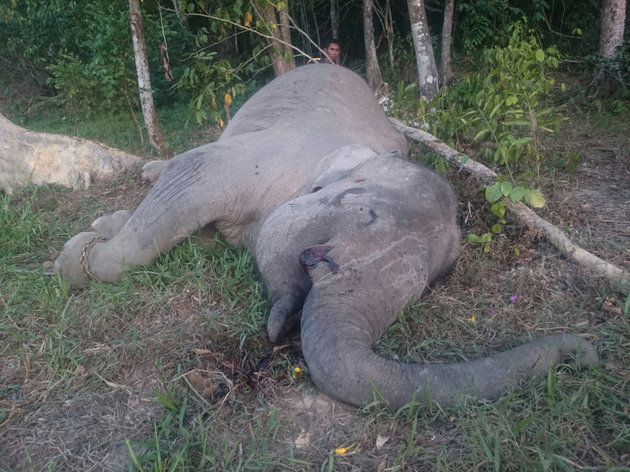-
Tips for becoming a good boxer - November 6, 2020
-
7 expert tips for making your hens night a memorable one - November 6, 2020
-
5 reasons to host your Christmas party on a cruise boat - November 6, 2020
-
What to do when you’re charged with a crime - November 6, 2020
-
Should you get one or multiple dogs? Here’s all you need to know - November 3, 2020
-
A Guide: How to Build Your Very Own Magic Mirror - February 14, 2019
-
Our Top Inspirational Baseball Stars - November 24, 2018
-
Five Tech Tools That Will Help You Turn Your Blog into a Business - November 24, 2018
-
How to Indulge on Vacation without Expanding Your Waist - November 9, 2018
-
5 Strategies for Businesses to Appeal to Today’s Increasingly Mobile-Crazed Customers - November 9, 2018
Beloved Elephant Yongki Killed By Poachers For His Ivory In Indonesia
Yongki’s grisly murder highlights the gruesome nature of the (often illegal) ivory trade, in which mostly elephants are targeted for their tucks by poachers.
Advertisement
He was found Friday around 7:30 p.m with his three-foot long tusks hacked off, “leaving just bloody stumps”, with his legs still bearing the chains placed onto him by his keepers to ensure he stayed in the camp, the news agency reported.
An endangered species himself, the 34-year-old Sumatran elephant patrolled the jungles of Bukit Barisan National Park on the island of Sumatra in western Indonesia on anti-poaching missions, and helped calm potentially unsafe wild elephants threatening to stampede.
Yongki’s work also involved patrolling around villages to prevent wild elephant rampages and promote harmony between people and animals living in and around Bukit Barisan Selatan national park.
Poisoning elephants like Yongki is a common practice in Sumatra where, according to the Washington Post, one set of ivory tusks can earn poachers a full year’s salary. Finding no trace of evidence in the area and no signs of struggle in Yongki’s body, an autopsy was conducted by the park team and NGOs who found a small wound in his tongue. They are threatened by poaching and deforestation in their native Asian habitat.
“We are mourning the loss of an elephant who has been helping us in handling conflicts and helping forest rangers patrol the forest, and he was a good elephant”, he said.
On the morning of September 18, one of the elephant keepers in the park found Yongki’s slumped carcass. Batubara told ABC that it is not yet known how the elephant was killed.
There was anger on social media after pictures of the elephant’s body circulated, with users posting comments on Twitter next to the hashtag #RIPYongki. Last year, reports the Post, seven elephants were poisoned in a single day alone.
Advertisement
“It is time we enforce life sentences for hunters of legally protected animals”, said Facebook user Aprilia Putri.





























